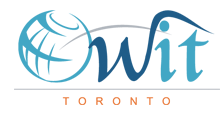Members of our Trade Policy Committee and Board have been busy after receiving a number of invitations from the federal government to provide input as stakeholders on gender and trade policy, on Investment facilitation and on feminist foreign policy. Here is where OWIT-Toronto is participating:
Gender and Trade Advisory Group. The Group has been created to play a pivotal role in advancing important conversations on trade and gender by engaging Canadians from all sectors and regions across Canada. This initiative aims to provide a forum for government and experts to hear from women-owned businesses on their challenges, concerns, and successes; receive feedback on our Trade and Gender chapter provisions for trade agreements and other trade policy issues; and build knowledge and capacity of the Gender and Trade Advisory Group members on trade policy. The plan is also to establish a sub-group that focuses on Gender Based Analysis of Free Trade Agreements (FTAs).
The inaugural meeting took place on October 28. Trade Policy Committee Co-Chair Susan Baka expressed the hope that that gender chapters included in FTAs, although certainly a good step, should move beyond being just aspirational in nature and next include clear measurements.
World Trade Organization (WTO) framework on investment facilitation: VP Partnerships Justine Namara and Trade Policy Committee Co-Chair Maria Marchyshyn prepared a very comprehensive OWIT- Toronto submission on a potential World Trade Organization (WTO) framework on investment facilitation. A group of WTO Members, including Canada, is holding discussions on a WTO framework for development to improve the transparency and predictability of investment measures; streamline and speed up administrative procedures and requirements; and enhance international cooperation and stakeholder relations.
Canada launched public consultations to hear from a broad range of partners, stakeholders, and individual Canadians to help define Canada’s priorities and inform future decisions on a potential WTO framework, particularly in areas of creating a more efficient, predictable, and investment-friendly business climate. By getting rid of unnecessary "red tape", it will be easier for businesses, particularly SMEs, to grow and to create good jobs for Canadians. The information gained from the public consultations will help inform Canada’s approach to the development of the framework. It is anticipated that formal WTO negotiations on the framework will begin in the coming months. The negotiations will not address market access, investment protection, or investor-state dispute settlement.
OWIT-TO’s submission addressed investment barriers and particular challenges faced by SMEs abroad, along with recommendations for a WTO framework.
North American SME Counseling Network Pilot Program: OWIT-TO has accepted an invitation to be part of this trilateral Canada-U.S.-Mexico initiative to establish a network of small and medium sized enterprise (SME) counselling organizations for a pilot program. The objective of te program is to connect SME counselling groups operating in North America to facilitate the exchange of information and best practices, as well as engage in joint activities with the ultimate aim of building a peer network.
This initiative is one of the first activities proposed under the Canada-United States-Mexico Agreement (CUSMA) Committee on SME issues, which is tasked with promoting increased trade and investment opportunities for SMEs, including through cooperation on support initiatives, joint activities to promote SMEs owned by under-represented groups, and the exchange of information and best practices.
Dialogue on Canada’s Feminist Foreign Policy White Paper. Over the last four years, the Canadian Government has made advancing diversity and inclusion, including gender equality and women’s empowerment, vital elements of its domestic and foreign policies. In this context, it has been applying a feminist approach across its international policy, advocacy and program efforts, including in diplomacy, trade, security, international assistance and consular services. This reflects a belief that fostering rights- based, inclusive and open societies is an effective way to build a safer, more sustainable and prosperous world.
Minister of Foreign Affairs François-Philippe Champagne announced a few months ago his intention to strengthen the foundations of Canada’s feminist foreign policy by working with civil society on a white paper. Our Trade Policy Committee will be providing input.



